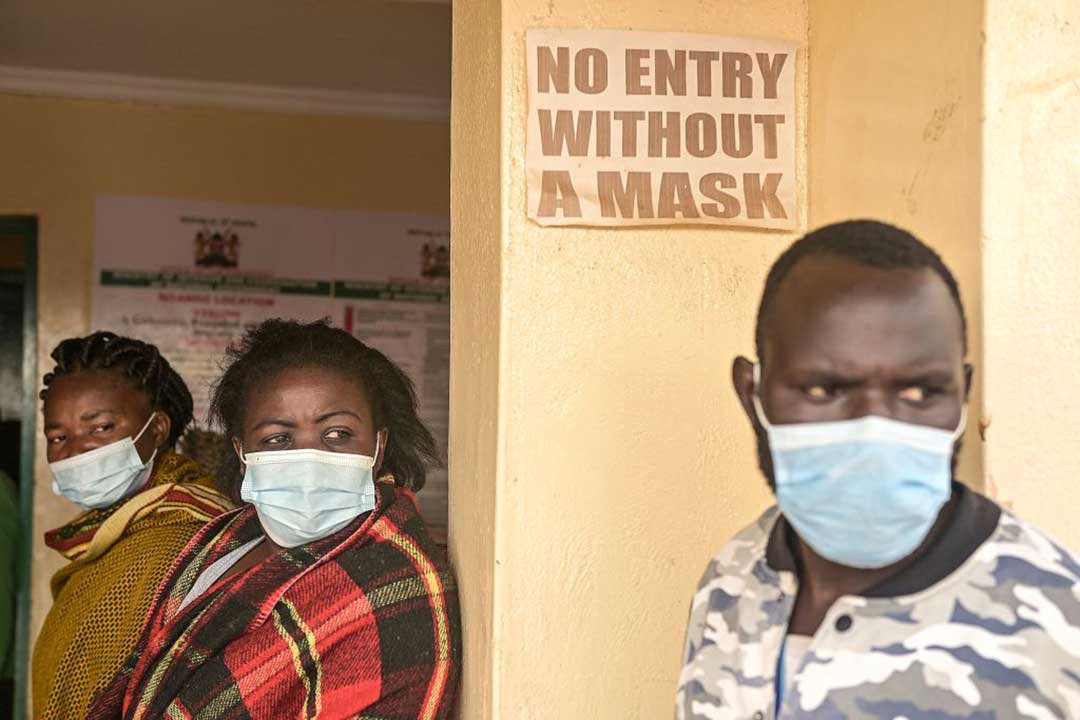Omicron Wave Rising and Falling Quicker Than Previous Waves
ADF STAFF
The omicron variant that struck Africa in December seems to have receded almost as quickly as it appeared in South Africa, but public health leaders warn that other countries may not have the same experience.
“This is just data coming from one country,” Dr. John Nkengasong, director of the Africa Centres for Disease Control and Prevention, said during a recent press briefing. “We don’t know, with the increased spread of omicron across the continent, what the situation will look like. So, we have to interpret this cautiously.”
Since omicron was first discovered in Botswana in late November, 22 African countries have reported it. While the omicron wave began in Southern Africa, it has now spread to other parts of the continent. Burkina Faso, Kenya and Morocco are among the countries newly reporting it.
“Omicron is spreading very quickly,” Nkengasong said.
With a two-to-three-day incubation rate, omicron spreads much faster than the delta variant but causes milder infections. South Africa’s National Institute for Communicable Disease reports that people infected with omicron have an 80% lower chance of hospitalization. South Africa’s omicron wave took about three weeks to peak, compared to six weeks or more for previous waves.
Nevertheless, the omicron variant helped drive up Africa’s count of new COVID-19 cases 21% in the week that ended December 22. More than half of those 253,000 new cases were in South Africa. Deaths rose 14% that same week.
A small study by South African researchers suggests that omicron, which accounted for 90% of new infections there, could displace the delta variant as the dominant strain worldwide. It appears, based on the study, that omicron-based immunity may protect people from infection by delta.
Omicron’s 50 mutations help it bypass the body’s defenses. People with immunity experience weaker symptoms than do those with no immunity. However, those who developed natural immunity to COVID-19 earlier in the pandemic appear to have less protection against omicron, according to research conducted in South Africa.
More than 70% of South Africa’s population has some immunity to COVID-19, which is one reason Nkengasong and other experts say its experience with omicron may be different from other countries where exposure levels are not as high.
“Public health is local,” Nkengasong said.
Even as omicron cases decline in South Africa’s Gauteng province, they’re rising in other parts of the country as people travel. Positivity rates are more than 30%, Dr. Angelique Coetzee, chair of the South Africa Medical Association, told CNN.
Coetzee reported that more than 500 people are in intensive-care units across South Africa, about half of them on ventilators. But, she added, those weren’t exclusively omicron cases.
Morocco, which has taken aggressive measures to prevent the spread of COVID-19, reported just 28 omicron cases between December 15 and December 22. About 20% of those were children under 14. The Ministry of Health is reviewing another 46 suspected omicron cases.
During December, Morocco’s new COVID-19 cases nearly doubled to 381, prompting the government to urge citizens to practice preventive measures such as wearing masks, washing hands and social distancing.
Like South Africa, Kenya’s COVID-19 positivity testing rate was above 30% in December — an all-time high for the country. Before the omicron outbreak, 6.5% of Kenya’s COVID-19 tests came back positive.
Githinji Gitahi, head of Amref Health Africa International, told Voice of America that many people with omicron infections are being treated as outpatients.
“We are not seeing many hospitalizations, oxygen requirement, ICU-HDU [intensive care units] as should have been expected,” Gitahi said. The reasons range from natural immunity to the general mild impact of the omicron strain, he added.


Good update and reassuring to many Africans like me to learn that Omicron variant isn’t as deadly as feared considering the fragile medical services of every country on the Continent.